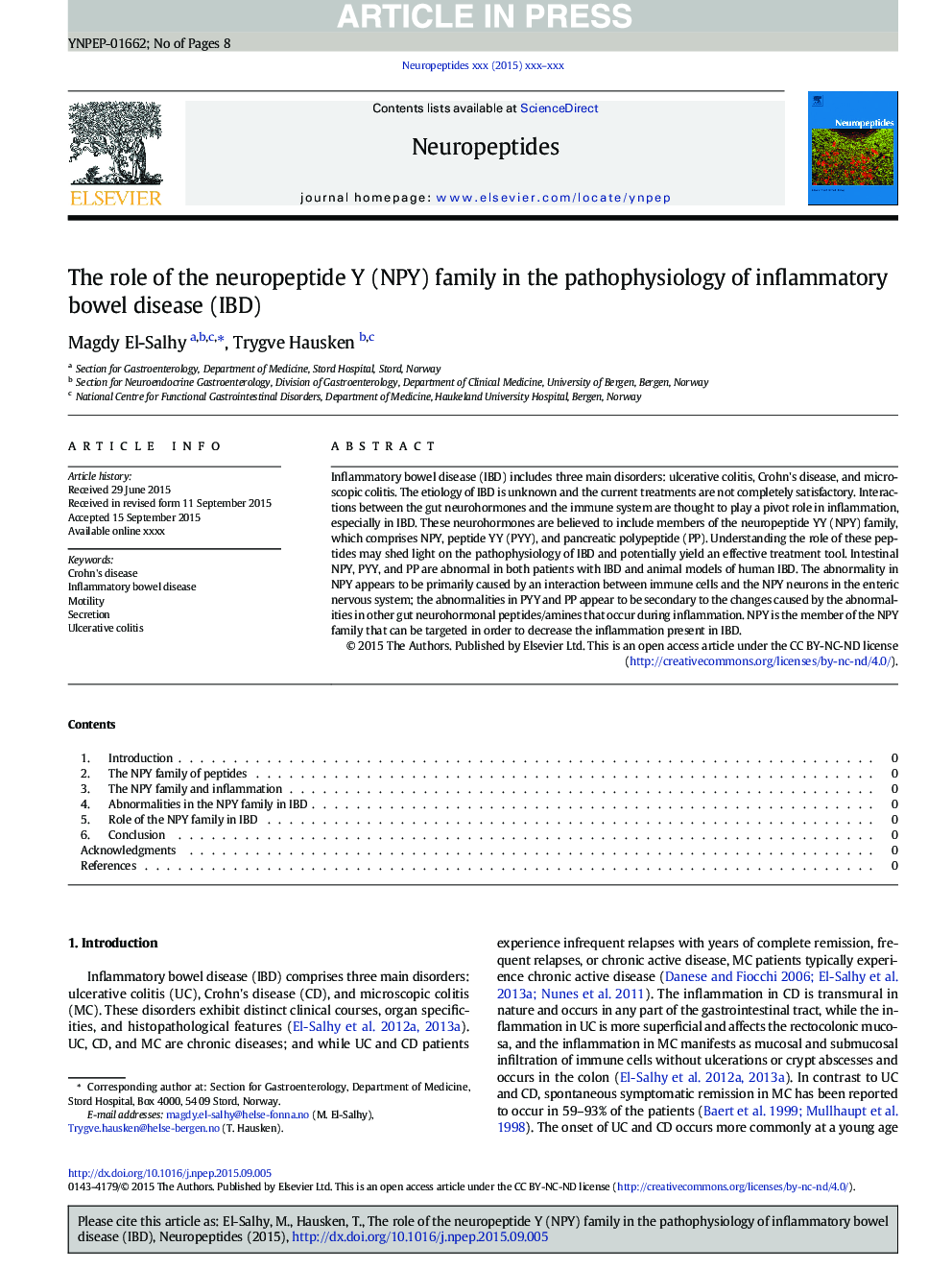| Article ID | Journal | Published Year | Pages | File Type |
|---|---|---|---|---|
| 5904276 | Neuropeptides | 2016 | 8 Pages |
Abstract
Inflammatory bowel disease (IBD) includes three main disorders: ulcerative colitis, Crohn's disease, and microscopic colitis. The etiology of IBD is unknown and the current treatments are not completely satisfactory. Interactions between the gut neurohormones and the immune system are thought to play a pivot role in inflammation, especially in IBD. These neurohormones are believed to include members of the neuropeptide YY (NPY) family, which comprises NPY, peptide YY (PYY), and pancreatic polypeptide (PP). Understanding the role of these peptides may shed light on the pathophysiology of IBD and potentially yield an effective treatment tool. Intestinal NPY, PYY, and PP are abnormal in both patients with IBD and animal models of human IBD. The abnormality in NPY appears to be primarily caused by an interaction between immune cells and the NPY neurons in the enteric nervous system; the abnormalities in PYY and PP appear to be secondary to the changes caused by the abnormalities in other gut neurohormonal peptides/amines that occur during inflammation. NPY is the member of the NPY family that can be targeted in order to decrease the inflammation present in IBD.
Related Topics
Life Sciences
Biochemistry, Genetics and Molecular Biology
Endocrinology
Authors
Magdy El-Salhy, Trygve Hausken,
